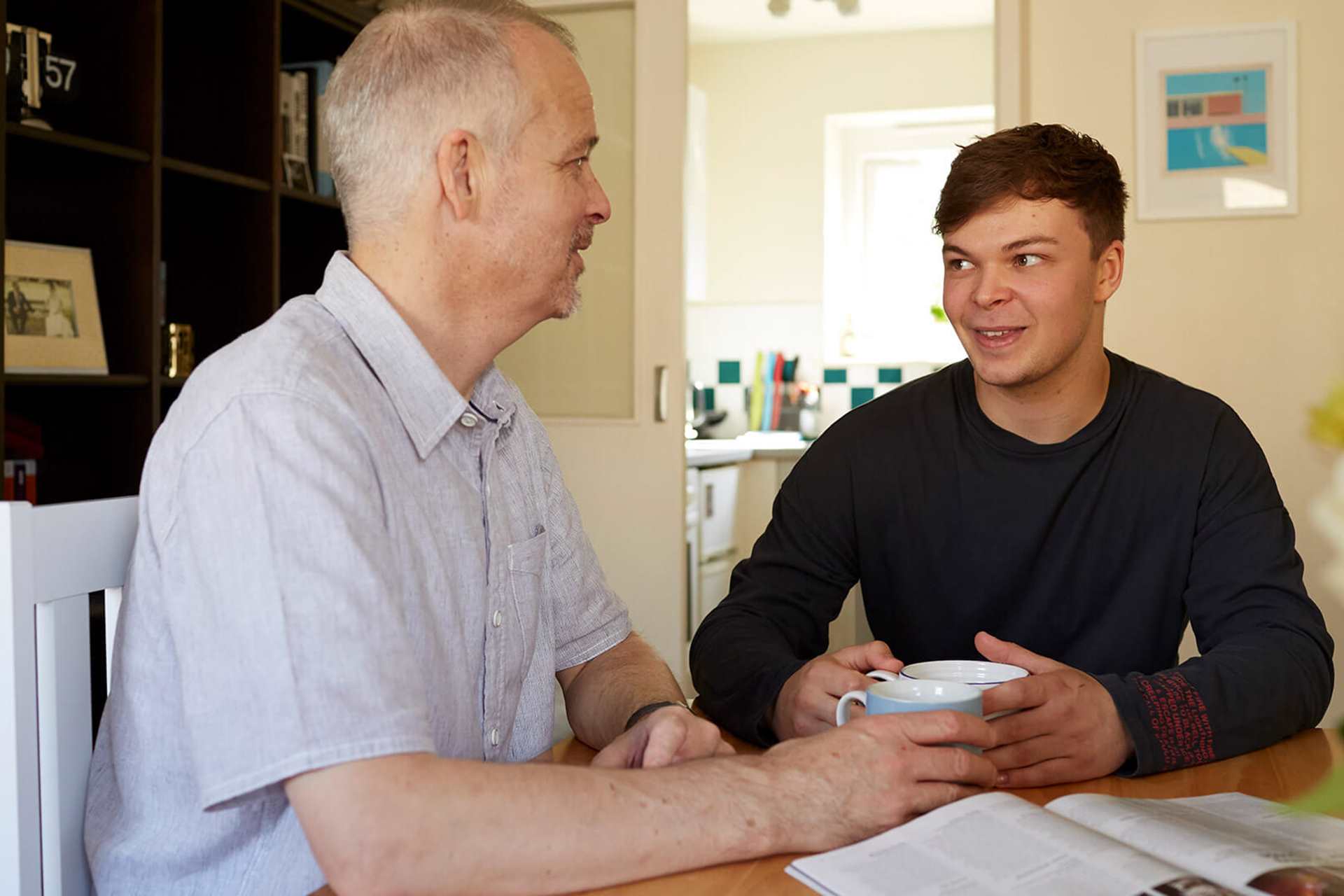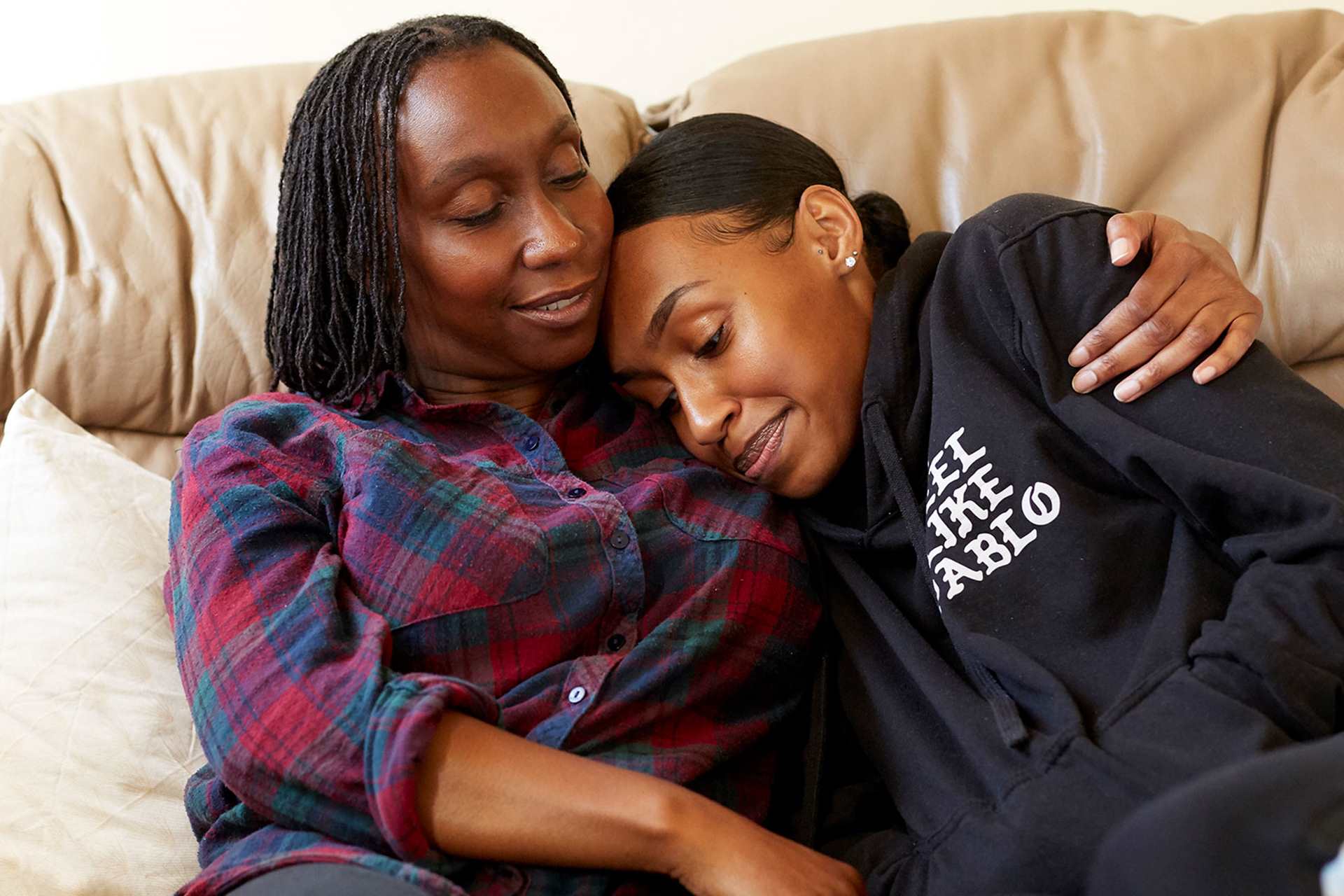Topics mentioned: talking to your child about mental health
About: Emma, Trauma and Mental Health Informed Practitioner, explains how you can open up conversations with your child and help them manage difficult feelings and experiences by developing your own listening skills.
'How can I support my child?' is one of the questions I am asked most often. One simple-sounding answer I often give is: really listen to them.
By listening to your child, you can help them to feel more understood and more able to cope. In contrast, when children feel they aren’t heard by the adults they try to talk to, they can feel left to face things alone. If they can’t talk, their feelings and worries can become bigger and harder to manage, and they may start to deal with things by acting out.
So what can you do to make your child feel heard? And what should you try to avoid? Here are my top tips.
Helpful ways to listen
To show your child you're listening, try to:
Give your child time to speak while you are fully focused. Try to relax your facial expression and body position. Put yourself at the same height or lower than them. Nod or make a sound to show you have heard and make eye contact (but don’t insist that they do).
Outcome for your child: I feel heard, I feel listened to, I feel valued.
Using statements to reflect back what you have heard allows your child to agree, disagree and explore their feelings. You can use phrases such as: ‘It sounds as if you’re feeling…’, or ‘What I’ve heard is…’ and follow up with, ‘Have I got that right?’
Outcome for your child: It feels so good to be heard and understood.
You can use phrases like: ‘No wonder you are feeling so…’, ‘It hurts so much when…’ or, ‘I’m so sorry you’re feeling like this’.
Outcome for your child: I feel more connected, less alone and less overwhelmed.
Link the key details of what has happened with the emotions your child is feeling now. This can help them to make sense of their experiences. Remember to check with your child that your summary is accurate, and give them an opportunity to correct you.
Outcome for your child: I hear my thoughts and feelings outside my own head, which helps me to think more clearly about them.
Use phrases like ‘I wonder if...’ or ‘Can you help me understand more about...?’ This helps your child to explore their feelings and experiences, and can feel less demanding than saying things like ‘What happened?’
Outcome for your child: They are interested in me, I feel really supported, I hadn’t thought about it like this.
Supporting your child to resolve a difficulty themselves, rather than simply telling them what to do, can empower them and increase their confidence and resilience. You could say, ‘I wonder what you could do?’ or ‘Have you got any ideas of what you’d like to do?’ Ask if they would like you to help - and if so, how - and encourage them to think about a Plan B if their first idea doesn’t work out.
Outcome for your child: I can manage this, they believe in me and I can ask for help if I need it.
Things to avoid
While it might sound simple, listening isn’t always easy. Understandably, we want to protect our children, take away their pain and make them feel better. But actually, much of what we do with the best of intentions can leave children feeling misheard, alone with their difficulties, or reluctant to talk about their feelings. Here are some tips for what not to do when you’re trying to listen to your child.
Avoid phrases like ‘don’t be silly’ or ‘there’s nothing to worry about’. It’s totally understandable that you want to focus on the positive or help your child to see the bigger picture, but this can actually leave them feeling that they shouldn’t voice their worries, or that their feelings are silly or unimportant.
While it may feel instinctive to try to make your child feel better, suggesting they squash a feeling - or telling them to do something else instead - may leave them feeling unheard or alone.
Although you want to make your child feel supported, and show that you are interested, giving them lots of ‘You should…’, ‘What you need to do is…’ or ‘If I were you…’ advice can make them feel as if they can’t manage the situation themselves, or that you aren’t listening to them.
Too many questions can create a lot of pressure for your child and discourage them from being open with you. It’s particularly important to avoid things like ‘Why are you worrying about that?’, which may make your child feel they are to blame for their feelings.
At first, focus on your child as an individual, helping them to explore their own feelings and their own ideas for solutions. Letting your child know that lots of people struggle with things like this, and that it’s really normal to find things difficult sometimes, can help them to feel reassured and less alone. But going into lots of detail about someone else can leave them feeling they haven’t been seen or heard.
If your child is at risk, the situation must be dealt with immediately and by adults. But in other circumstances, try to resist the natural urge to fix the problem straight away, however well-intended. Focus at first on really listening and understanding their perspective. After this, you can explore with them if there is anything they would like you to do to make the situation better.
Practising your listening skills
This may feel a bit strange at first, but the more you try it, the easier and more natural these skills will feel. Don’t worry if you make a mistake – no one gets it right all the time. Explain how you think you might have got it wrong, and ask your child if you can start again.
Start by practising on small everyday conversations so that when big ones arise you will feel more confident. As your child begins to feel more heard, valued and supported in the little things, they are more likely to come to you with the bigger things.
Don’t worry if you make a mistake – no one gets it right all the time. Explain how you think you might have got it wrong, and ask your child if you can start again.
More information and advice
We have more tips to help you support your child with their mental health.
Spread the word



